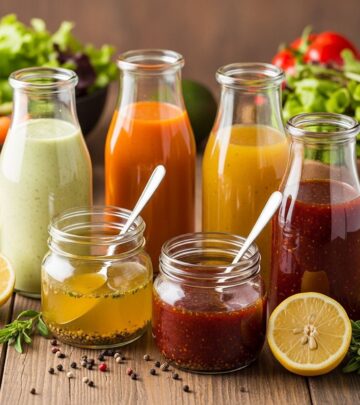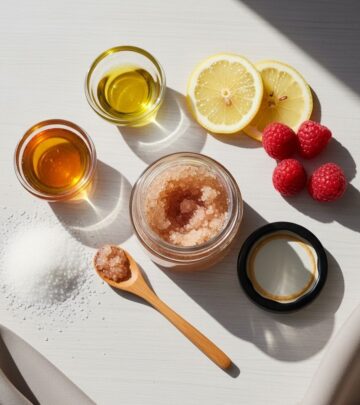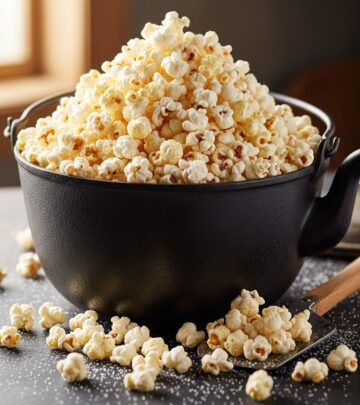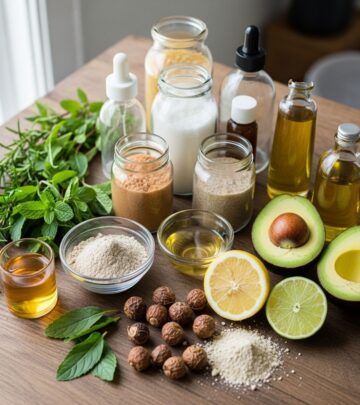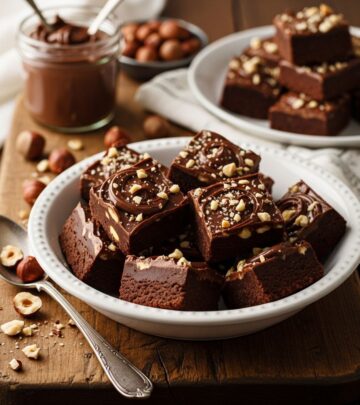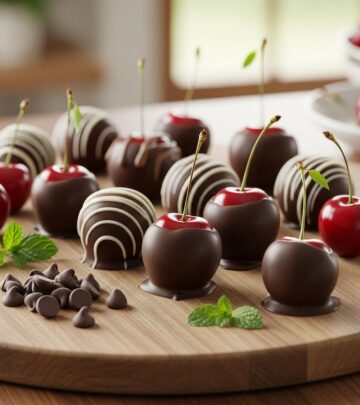Classic Mexican Drinks: From Margaritas to Atole and Beyond
Experience vibrant flavors and honored beverage rituals in every serving.
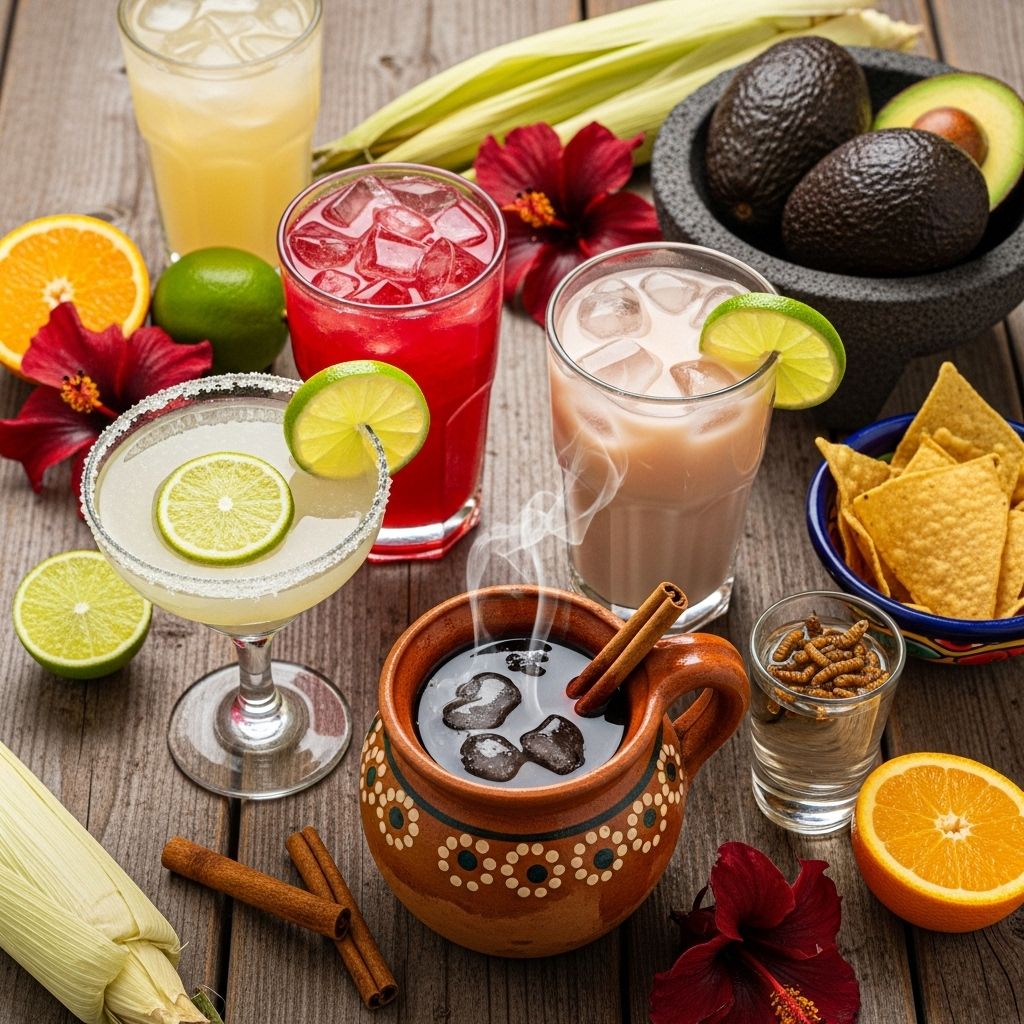
Image: HearthJunction Design Team
Mexico’s drink culture is as colorful and lively as its food, brimming with ancient traditions, bold flavors, and refreshing options for every occasion. Whether you’re sipping a classic margarita, indulging in velvety champurrado, or cooling down with a vibrant agua fresca, these drinks capture the heart of Mexican hospitality and celebration. Here, we explore a diverse range of classic Mexican drinks—both alcoholic and non-alcoholic—that you’ll want to recreate at home or enjoy at your favorite taquería.
Iconic Margaritas and Their Variations
No exploration of Mexican drinks would be complete without the margarita, a timeless favorite with countless creative twists. Get to know the most beloved renditions and what sets them apart.
Bulldog Margarita
The Bulldog Margarita, affectionately known as a “mexican coronita,” is the ultimate summertime fusion of two favorites: margarita and beer. Traditionally made by flipping a bottle of Corona or your favorite Mexican beer upside-down into a frozen margarita, this playful concoction is a hit at parties thanks to its fun presentation and extra fizz.
Why you’ll love it:
- Refreshing blend of tequila, citrus, and beer
- Ideal for hot days and large gatherings
- Customizable with various Mexican beers
Jarritos Margarita
The Jarritos Margarita brings together the iconic Mexican soda and tequila for a bubbly, fruit-forward twist. Classic Jarritos flavors like pineapple, tamarind, and guava elevate the cocktail’s sweetness and color, while soda’s effervescence makes for a uniquely vibrant sipping experience.
Perfect for:
- Fans of colorful, fruity drinks
- Those looking for a playful twist on the classic margarita
Cadillac Margarita
For a more refined take, the Cadillac Margarita uses reposado tequila—bringing subtle oak and vanilla notes—and tops it off with Grand Marnier instead of orange liqueur. The result is a smooth, elevated margarita that spotlights both quality ingredients and expert balance.
Why it stands out:
- The use of aged tequila offers a warm, complex finish
- Grand Marnier introduces a richer orange profile
- Perfect for special occasions or when you want to impress guests
Timeless Tequila and Mezcal Cocktails
Mexico’s native spirits—most famously tequila and mezcal—are the backbone of many classic drinks. Both are made from agave but feature unique production methods and flavor profiles. While tequila tends to be smooth and crisp, mezcal is known for its smoky, earthy complexity.
Standout cocktails include:
Cantaritos
One of Mexico’s most beloved regional cocktails, the Cantaritos is a citrus lover’s dream. Served in traditional unglazed clay cups, this drink blends tequila or mezcal with a medley of grapefruit, orange, and lime juices, then tops it with grapefruit soda for an extra burst of effervescence. The rim is often dusted with chamoy or chili-lime seasoning for a tangy kick.
Key features:
- Refreshing, bold, and citrus-forward flavors
- Traditionally served in cured clay cups
- Optional spicy rim for extra zing
Tequila and Mezcal: The Essentials
| Spirit | Main Ingredient | Flavor Profile | Classic Cocktails |
|---|---|---|---|
| Tequila | Blue agave | Smooth, sometimes peppery or citrusy | Margarita, Tequila Sunrise, Paloma |
| Mezcal | Diverse agave species | Earthy, smoky, herbal or fruity undertones | Mezcal Mule, Oaxaca Old Fashioned, Naked and Famous |
Non-Alcoholic Mexican Beverages
Mexican drink culture isn’t just about spirits—its non-alcoholic drinks are equally legendary. From invigorating agua frescas to warming hot chocolates, there’s something for every season.
Agua Fresca
Literally meaning “fresh water,” agua fresca is a catch-all term for light, unsweetened beverages made from fruit, grains, seeds, or flowers blended with water and sugar. Served icy cold, aguas frescas are a staple at street stalls and family gatherings.
- Horchata: Creamy and refreshing, horchata is made from rice (sometimes almonds), flavored with cinnamon and vanilla for a dessert-like treat.
- Jamaica: Brewed with vibrant hibiscus flowers, this tart, ruby-red agua fresca is both tangy and thirst-quenching.
- Tamarindo: Made from tangy tamarind pods, offering a sweet-sour profile and smooth mouthfeel.
Mexican Hot Chocolate
The Mexican version of hot chocolate is a far cry from its milder, powdered cousins. Infused with cinnamon and often a dash of cayenne, this beverage is rich, spicy, and deeply comforting on a cold night. True enthusiasts use disks of Mexican chocolate, which bring subtle notes of spice and sugar, frothed up with a traditional wooden whisk called a molinillo.
Customization tips:
- For extra heat, add a pinch of cayenne or chili powder
- Omit the cayenne for a milder, family-friendly version
Champurrado
For an even richer experience, try champurrado—a thick, hearty hot chocolate and a special type of atole. Dating back to Aztec times, it’s thickened with masa harina (corn flour), which adds subtle sweetness, body, and earthy richness. It’s especially popular during Dia de los Muertos and winter holidays.
- Made with real Mexican chocolate, milk, and masa harina
- Traditionally served at breakfast or festive gatherings
- Pairs perfectly with tamales or sweet bread
Other Mexican Drinks to Try
- Paloma: A sparkling, grapefruit-based tequila cocktail popular nationwide.
- Michelada: A savory beer cocktail with lime, tomato juice, and spices, perfect for hot afternoons.
- Carajillo: Coffee liqueur and espresso shaken over ice—a Mexican twist on a classic digestif.
- Rompope: Mexico’s answer to eggnog, rich with vanilla and spiked with rum.
- Tepache: A fermented pineapple beverage enjoyed for its tart, mildly alcoholic zing.
Cultural Traditions and Serving Tips
Beyond their bold flavors, Mexican drinks often come with specific serving traditions that enhance their enjoyment and social significance.
- Clay cups: Drinks like cantaritos are ideally served in unglazed earthenware cups, which add subtle minerality and tradition (and should be soaked in cold water before use).
- Garnishes: Fresh citrus, herbs, and chili-rimmed glasses boost aroma and presentation.
- Sharing: Many non-alcoholic beverages like aguas frescas are served in large pitchers for communal sipping.
Frequently Asked Questions (FAQs)
Q: What’s the difference between tequila and mezcal?
A: Both are Mexican spirits made from agave, but tequila uses only blue agave and is usually smoother, while mezcal can be made from various agave types and often has a smoky, earthy flavor profile due to its traditional roasting process.
Q: How do I serve aguas frescas at a party?
A: Serve aguas frescas chilled in large clear pitchers or traditional glass dispensers. Offer ice and lime wedges on the side for extra freshness. They can also be garnished with fruit slices matching the beverage flavor (e.g., watermelon slices for agua de sandía).
Q: What’s the best tequila for margaritas?
A: For classic margaritas, blanco (silver) tequila provides bright agave flavor. For more complex, refined cocktails like Cadillac margaritas, opt for reposado, which is aged and develops vanilla and oak notes.
Q: How is champurrado different from regular hot chocolate?
A: Unlike regular hot chocolate, champurrado is thickened with masa harina (corn flour), which gives it a heartier, creamier texture and a unique sweet-corn undertone.
Q: What are aguafrescas and what flavors are popular?
A: Aguas frescas are light, sweetened drinks made by blending fruit, grains, or seeds with water and sugar. Popular flavors include horchata (rice), jamaica (hibiscus), and tamarindo (tamarind).
Try Mexican Drinks at Home
From sparkling margaritas to soulful hot chocolates, Mexico’s drink traditions invite you to celebrate life’s moments—big and small. Whether you want to host a summer fiesta or add warmth to a winter gathering, these classic Mexican drinks bring color, culture, and unbeatable flavor to your glass. ¡Salud!
References
Read full bio of medha deb

